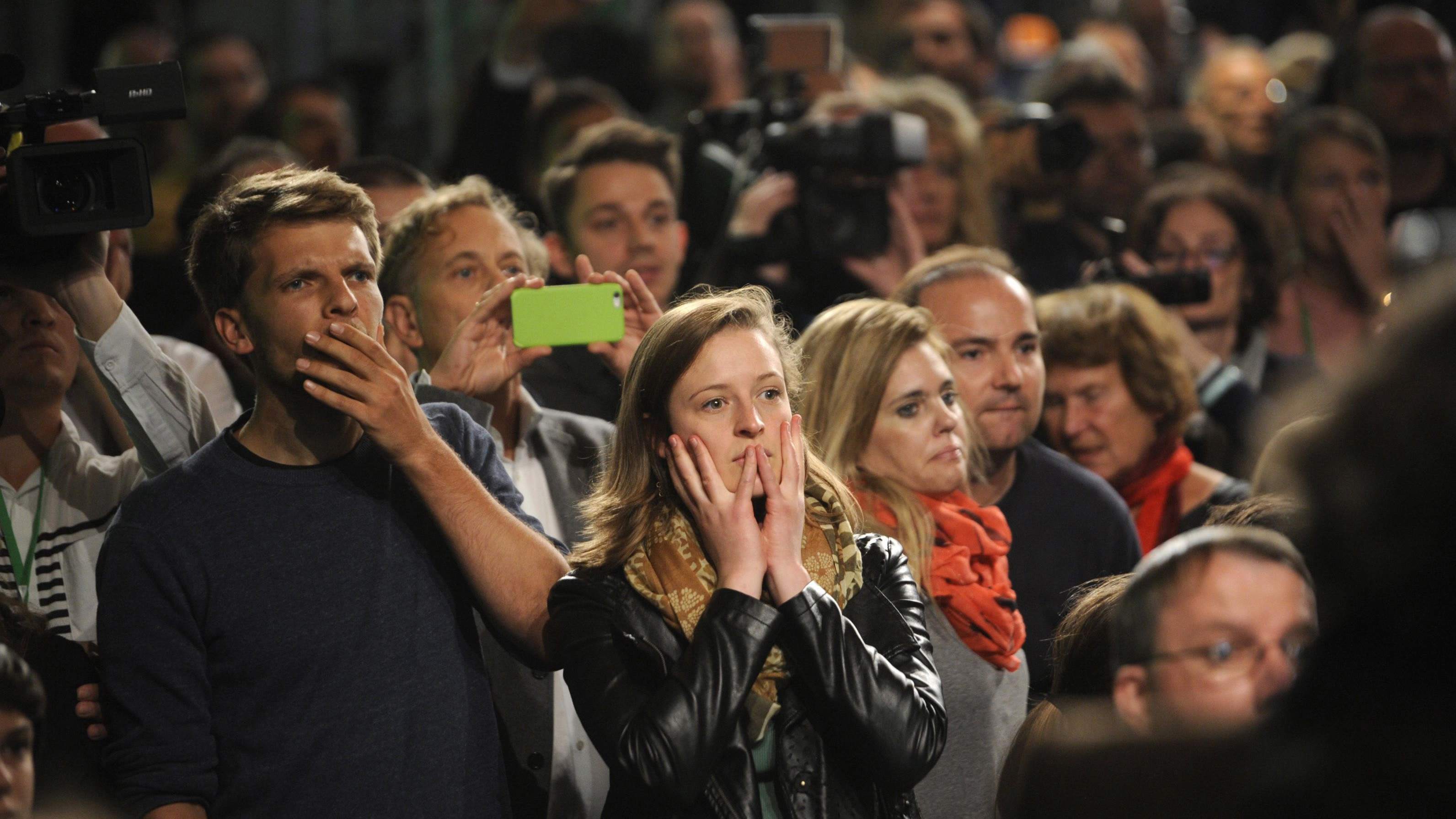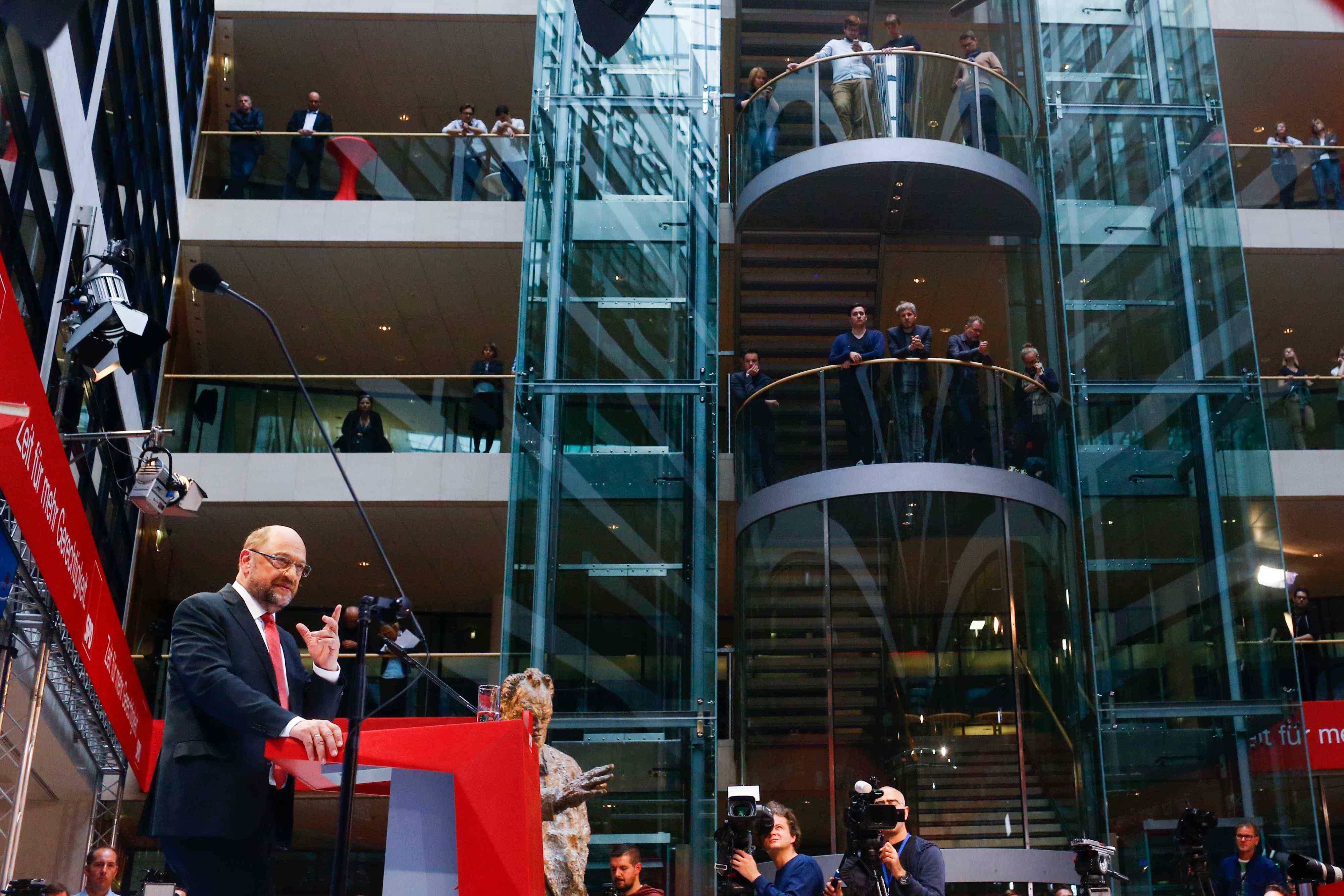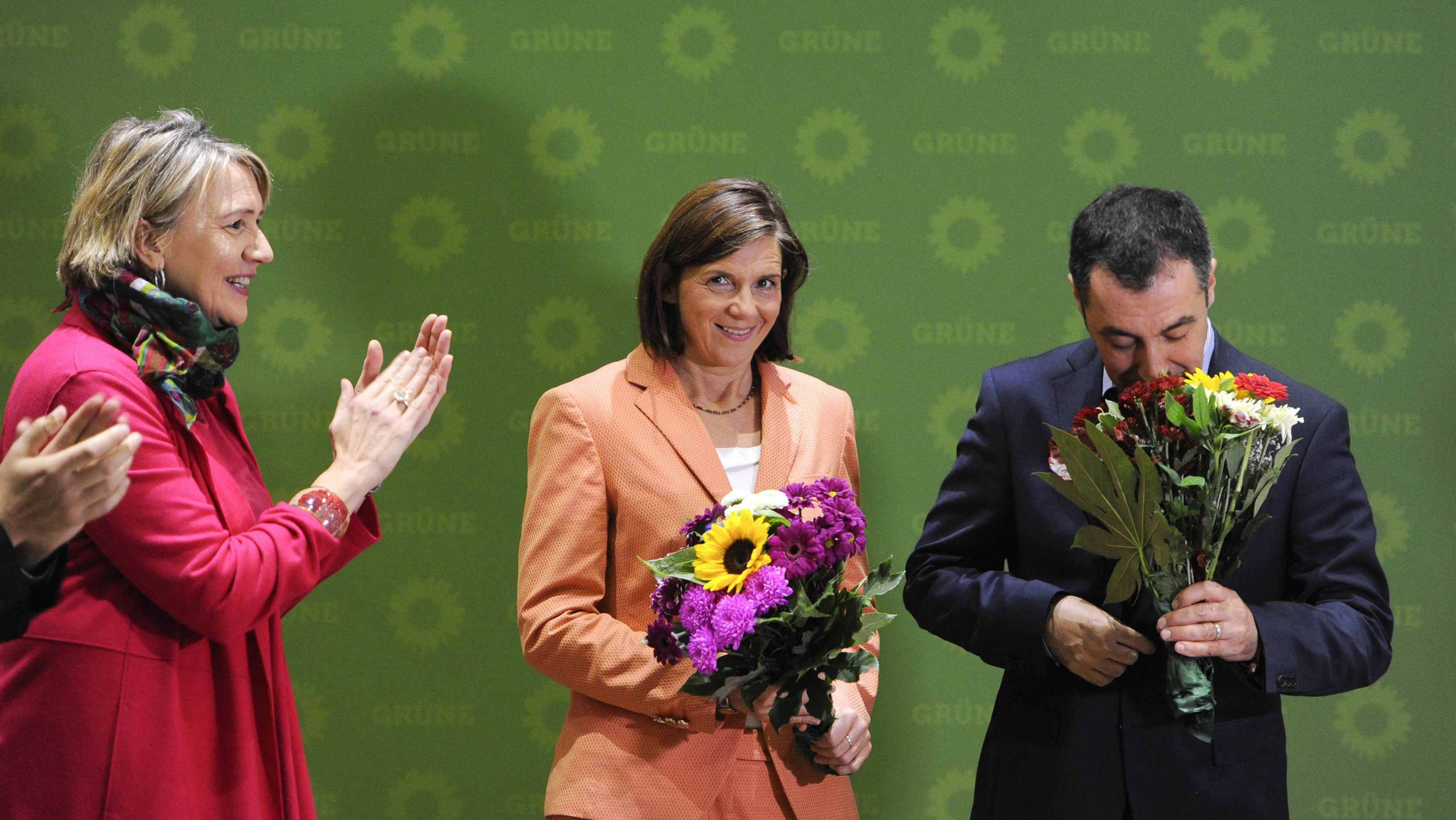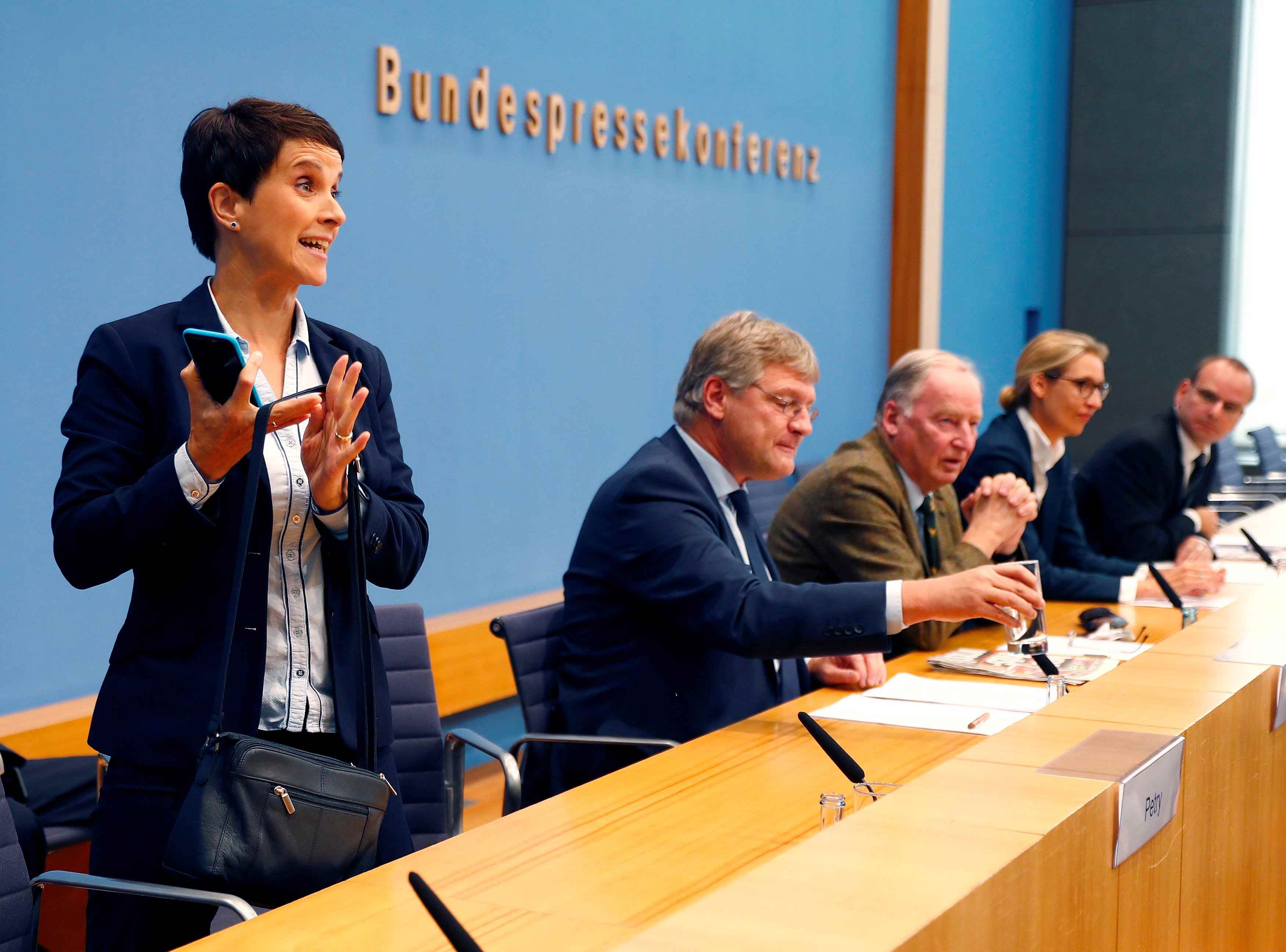
Politics
15:53, 26-Sep-2017
Could mainstream German parties limit far-right power?
By Nadeem Gill

Germany’s right-wing populists have made their way to the parliament, leaving 87 percent of the Germans who did not vote for them worried.
The election results will now haunt them for at least the next four years.
Germans headed to the polling stations on Sunday to cast their ballots in the federal elections. The results have met the expectations of most of the opinion polls.
Chancellor Angela Merkel secured a fourth-term in office, but the right-wing populist Alternative for Germany (AfD) emerged as the biggest winner. It became the third-largest grouping in the parliament after securing 94 seats in the 709-seat parliament.
Merkel’s Christian Democratic Union (CDU) lost 65 seats but is still in first place with 246 seats while the Social Democratic Party (SPD) got 153 with the loss of 40.

Social Democratic Party leader and top candidate Martin Schulz speaks during a news conference at the party headquarters in Berlin, Germany, September 25, 2017. /Reuters Photo
Social Democratic Party leader and top candidate Martin Schulz speaks during a news conference at the party headquarters in Berlin, Germany, September 25, 2017. /Reuters Photo
The business-friendly Free Democratic Party (FDP) is returning to parliament after a four-year hiatus. It has got 80 seats this time. The Left increased their representation to 69 MPs and the Greens to 67.
After the disappointing election results, SPD leader Martin Schulz said his party would sit on opposition benches this time. The SPD secured 20.5 percent votes, 5.2 percent less than in the 2013 elections.
The post-election conundrum has made it difficult for Merkel to form a coalition government and the task may take months. The AfD is apparently the biggest reason behind the problem that not only Merkel but all mainstream political parties are facing.
There are two primary tasks:

Top candidates of the Alliance 90/The Greens party Cem Ozdemir (R) and Katrin Goering-Eckardt look at flowers in Berlin, Germany, September 25, 2017. /Reuters Photo
Top candidates of the Alliance 90/The Greens party Cem Ozdemir (R) and Katrin Goering-Eckardt look at flowers in Berlin, Germany, September 25, 2017. /Reuters Photo
To form a stable coalition government
To keep right-wing populists at bay
The first task may be achieved in a few months, but the latter needs continuous efforts throughout Merkel’s fourth term.
The AfD visibly shook all leaders from the mainstream parties after winning its first parliamentary seats. They appear in a desperate attempt to limit the power of right-wing outfit.
Merkel expressed her concern in the first post-election comments, saying she wanted to win back one million voters that her party had lost to AfD.
"We have started to analyze the voters we lost, especially with regards to those who went on to vote for the AfD, we want to get them back by good politics and to address some of the issues," Merkel said on Monday.
Schulz said he would stop AfD from being the main opposition party. The Greens said they were "deeply troubled" by the AfD being in parliament.
Could the German right-wing grow even more?
A commentary by Stefan Kuzmany in Germany’s Spiegel magazine praised the SPD for its stance.

Frauke Petry, chairwoman of the anti-immigration party Alternative fuer Deutschland (AfD) leaves a news conference next to Jorg Meuthen (2nd L), leader of the party and top candidates Alice Weidel (2nd R) and Alexander Gauland in Berlin, Germany, September 25, 2017. /Reuters Photo
Frauke Petry, chairwoman of the anti-immigration party Alternative fuer Deutschland (AfD) leaves a news conference next to Jorg Meuthen (2nd L), leader of the party and top candidates Alice Weidel (2nd R) and Alexander Gauland in Berlin, Germany, September 25, 2017. /Reuters Photo
“The Alternative for Germany's entry into the German parliament is not normal – it's an attack on our liberal democracy, one that all the other parties must fight. That's just one reason that going into opposition is the right decision by the Social Democrats,” wrote Kuzmany.
There are fears, especially among Jewish and Muslim communities in Germany, that the rightists may get even stronger.
The election results appear to have toughened up the AfD rhetoric against Merkel and her policies. Its leaders threatened to “hound Angela Merkel” and “take back our country and our people”. They said they would launch a legal investigation into the refugee crisis.
But within hours of its success in the elections, cracks appeared in the leadership of the German right-wing populists. Frauke Petry, one of the high-profile party figures, stormed out of its victory news conference, saying she could not work with an "anarchistic party" without a reliable plan to govern and would sit in parliament as an independent.

SITEMAP
Copyright © 2018 CGTN. Beijing ICP prepared NO.16065310-3
Copyright © 2018 CGTN. Beijing ICP prepared NO.16065310-3